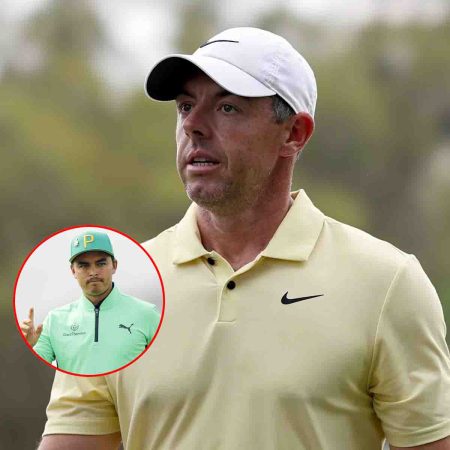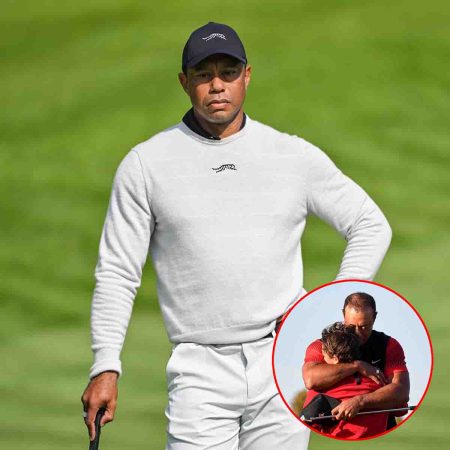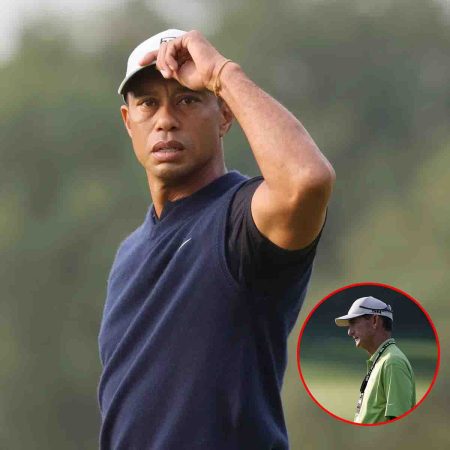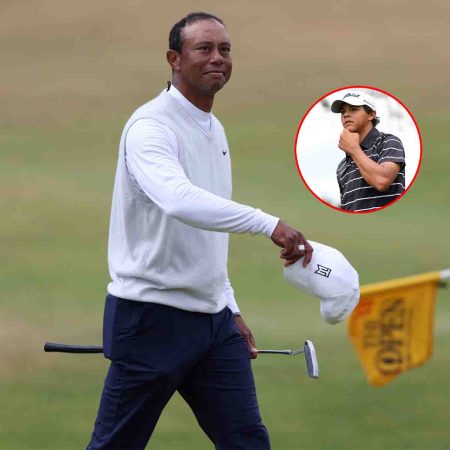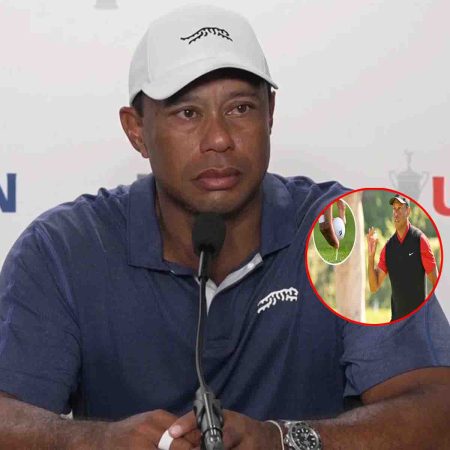The league began in 1947 but didn’t start handing out an award for the best overall player until the 1955-56 season. This season will be the first time that the MVP will have a new name – The Michael Jordan Trophy, named after the five-time MVP, is given to the best overall player in the league. Before this season, the winner received the Maurice Podoloff Trophy, which was named after the first NBA commissioner. From 1956 to 1981, the winner was voted by the players. After the change, a panel of sportswriters and broadcasters in the United States and Canada began voting for the winner.
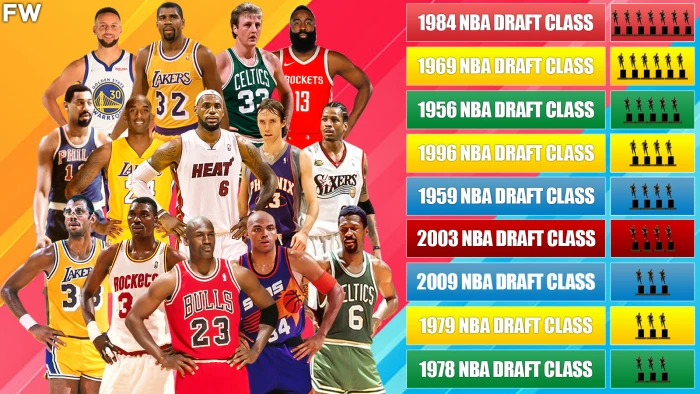
When a team gets the No. 1 overall pick, the instant reaction is that player could one day be the best in the league. Being the “best” player at the draft does not always mean that the player will turn into an MVP, though. However, players like Kareem Abdul Jabbar, Hakeem Olajuwon, Magic Johnson, and others have lived up to the expectations of some of the best players in the league. For other players, second-round pick Nikola Jokic remains a special story.
When looking at draft classes, having multiple players come out with MVPs makes it a special class. Having one player get an MVP, along with multiple wins, makes that player stand out from a legacy standpoint. Two draft classes feature at least three players winning an MVP Award. When looking at which class has the most MVPs, we look at those calculations right now.
These are the most MVP Awards by draft class.
7T. 1978 NBA Draft Class – 3 MVP Awards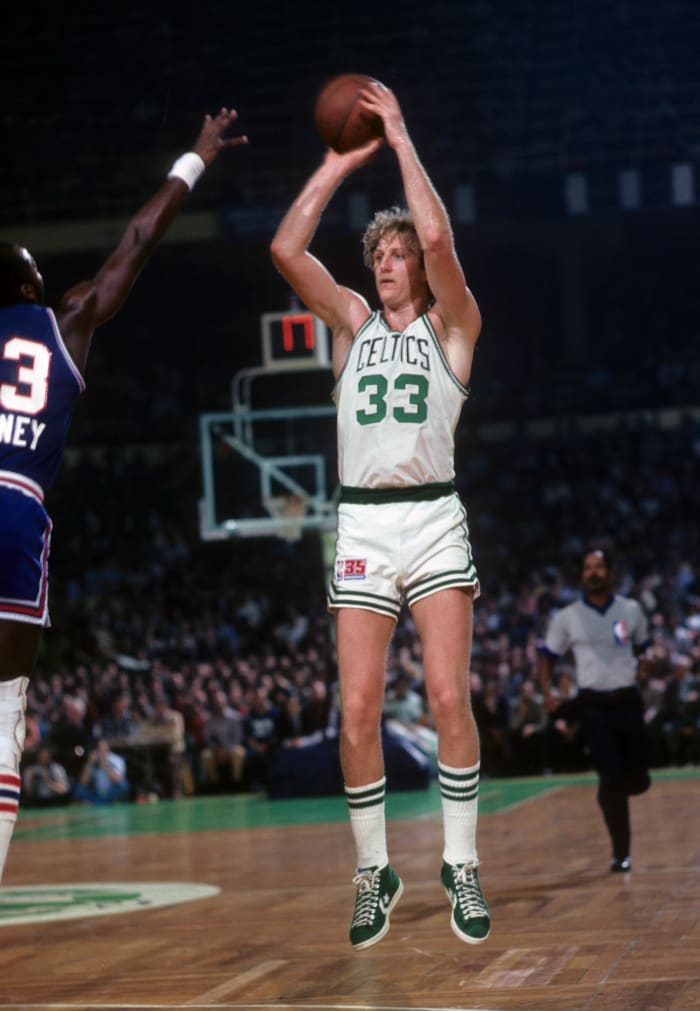
Credit: Dick Raphael-USA TODAY Sports
Larry Bird – 3 MVP Awards
Mychael Thompson, Phil Ford, Rick Robey, Michael Ray Richardson, and Purvis Short were all taken ahead of Bird in this draft. None of those players won an MVP Award. The 1978 class featured a second-round steal with Maurice Cheeks, a future Hall of Famer but not someone that ever won an MVP Award. This class gets to crack into this conversation thanks to Bird, who remains the last player to win three straight MVPs.
From 1984 to 1986, Bird was truly the best player in the NBA. Bird won the award in 1984 when he averaged 24.2 points, 10.1 rebounds, 6.6 assists, and 1.8 steals per game. Bird later led the Celtics to the championship and the Finals MVP Award. In 1985, Bird won the award again after averaging 28.7 points, 10.5 rebounds, and 6.6 assists. In 1986, Bird battled through a bad back injury he suffered in the offseason but averaged 25.8 points, 9.8 rebounds, 6.8 assists, and 2.0 steals, and he won a second NBA title and Finals MVP.
7T. 1979 NBA Draft Class – 3 MVP Awards
Credit: RVR Photos-USA TODAY Sports
Magic Johnson – 3 MVP Awards
The 1980s were a battle between the Lakers and Celtics, often between rivals Larry Bird and Magic Johnson. That is why it is no surprise to see these two players as the reason why their respective draft classes get the crack into the top rankings for MVP Awards. This class featured some late steals in Bill Laimbeer (No. 65 overall), and Mark Eaton (No. 107 overall), while No. 5 overall pick Sidney Moncrief was a great player during the decade. In the end, the No. 1 overall pick Johnson was literal magic on the floor.
The five-time champion won in 1987, 1988, and 1990. His first MVP came when he averaged 23.9 points, 12.2 assists, and 6.3 rebounds per game. He won the following season again when the Lakers were tasked with repeating as champions. Johnson finished the regular season with 19.6 points, 11.9 assists, and 6.2 rebounds as the Lakers repeated as champions. In 1990, the Lakers did not win an NBA championship, but he won the regular season MVP when he averaged 22.3 points, 11.5 assists, and 6.6 rebounds per game.
7T. 2009 NBA Draft Class – 3 MVP Awards
Credit: Kyle Terada-USA TODAY Sports
Stephen Curry – 2 MVP Awards
James Harden – 1 MVP Award
This 2009 draft class is one of two modern-day special classes. No. 1 overall pick Blake Griffin was no slouch, while Tyreke Evans was the league Rookie of the Year. DeMar DeRozan is a scoring machine, Jrue Holiday is an All-Defensive champion, while many others are serviceable veterans. Two players stood at the top, though, and both were taken after Hasheem Thabeet at No. 2 overall. James Harden was the No. 3 overall pick and had one of the best scoring runs we saw in three years. Meanwhile, Curry is a four-time champion and the all-time greatest shooter ever.
Curry won his award in back-to-back seasons in 2015 and 2016. During that time, the Warriors won a championship in 2015. In the regular season, Curry averaged 23.8 points, 7.7 assists, and 2.0 steals per game. Then, Curry followed that by becoming the first unanimous MVP in NBA history. Curry led the Warriors to a 24-0 start and then finished the season making more than 400 3-point field goals. The Warriors won a league-record 73 games, while Curry made the 50-40-90 Club. As for Harden, he led the Rockets to the No. 1 overall season with a franchise-record best 65 wins. His line featured 30.4 points, 5.4 rebounds, 8.8 assists, and 1.5 steals during the 2017-18 season.
4T. 2003 NBA Draft Class – 4 MVP Awards
Credit: Howard Smith-USA TODAY Sports
LeBron James – 4 MVP Awards
This class features a slew of Hall of Famers Carmelo Anthony, Chris Bosh, and Dwyane Wade. Funny enough, Bosh and Wade were members of two championships in Miami but were both considered the second and third-best players on those teams to their 2003 draft class teammate LeBron James. The No. 1 overall pick won two MVPs with the Cavaliers in back-to-back seasons and also won back-to-back MVPs while playing with the Heat.
James had been expected to win an MVP for several years but didn’t get his first until 2009. That season, he averaged 28.4 points, 7.2 assists, 1.7 steals, and 1.2 blocks per game. He finished second in the Defensive Player of the Year Award as well. He won it a second year in a row after averaging 29.7 points, 7.3 rebounds, and 8.6 assists. 1.6 steals and 1.0 blocks per game. James won two times with the Heat, averaging 27.1 points, 7.9 rebounds, 6.2 assists, and 1.9 steals during the 2011-12 season. He capped off the four-peat with 29.7 points and 7.8 assists and helped orchestrate a 27-game winning streak during the 2012-13 season.
4T. 1959 NBA Draft Class – 4 MVP Awards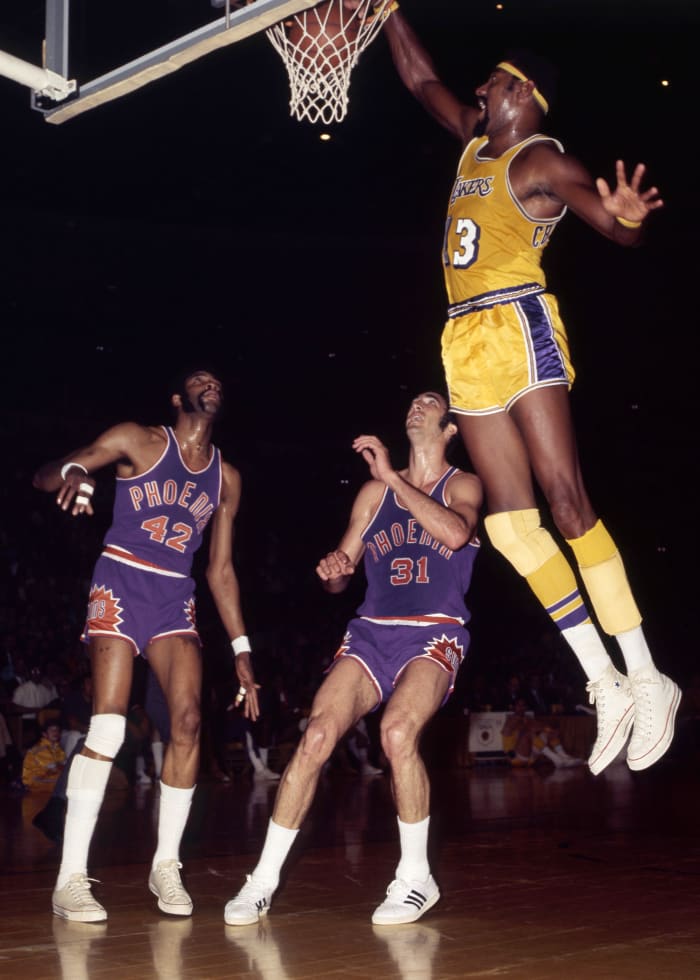
Credit: Darryl Norenberg-USA TODAY Sports
Wilt Chamberlain – 4 MVP Awards
The MVP Award came out right around the right time for Chamberlain to break out and win the award four times. While Bob Boozer, Dirk Barnett, and Johnny Green were solid players, nobody matched the resume of Wilt Chamberlain. As a rookie, Chamberlain won the Rookie of the Year Award and MVP. In his third game of the season, the league knew this kid was special when he scored 43 points and grabbed 40 rebounds. By the end of the year, Chamberlain averaged 37.6 points and 27.0 rebounds. Chamberlain then went six seasons before completing a three-peat of the MVP Award.
In 1966, Chamberlain was the winner after averaging 33.5 points and 24.6 rebounds per game, where he led the league in scoring and rebounding. The following season, Chamberlain changed his game a bit by concentrating on defense while continuing to be a dominant rebounder. The change helped the 76ers start 46-4 and win 68 games. By the end of the year, Chamberlain averaged 24.1 points, 24.2 rebounds, and 7.8 assists. His third MVP season in 1968 came at the heels of 24.3 points, and 23.8 rebounds, which included a game where he recorded a quintuple-double of 53 points, 32 rebounds, 14 assists, 24 blocks, and 11 steals against the Lakers.
4T. 1996 NBA Draft Class – 4 MVP Awards
Credit: Geoff Burke-USA TODAY Sports
Steve Nash – 2 MVP Awards
Kobe Bryant – 1 MVP Award
Allen Iverson – 1 MVP Award
The top six picks of this draft were solid. Allen Iverson, Marcus Camby, Shareef Abdur-Rahim, Stephon Marbury, Ray Allen, and Antoine Walker all range from All-NBA, All-Star, Defensive Player of the Year, and champion. The top pick of the draft, Iverson lived up to his rank at No. 1 overall when he won four scoring titles in his career and an MVP Award. During the 2000-01 season, Iverson guided the 76ers to the most wins (56) in the Eastern Conference and an appearance in the NBA Finals. Iverson averaged 31.1 points and led the league in steals at 2.5.
You have to go down to the mid-first-round to find the next highest pick. Kobe Bryant, the No. 13 overall pick, was a three-time champion and multi-scoring champion before he won his MVP Award in 2008. The Lakers won 57 games and finished the season averaging 28.3 points, 6.3 rebounds, and 5.4 assists. As for the two-time winner Steve Nash, the No. 15 overall pick, won back-to-back seasons in 2005 and 2006. Nash averaged 15.5 points and 11.5 assists during the 2004-05 season. Then, he followed that by averaging 18.8 points and 11.6 assists while shooting 50-40-90 from the field.
3. 1956 NBA Draft Class – 5 MVP Awards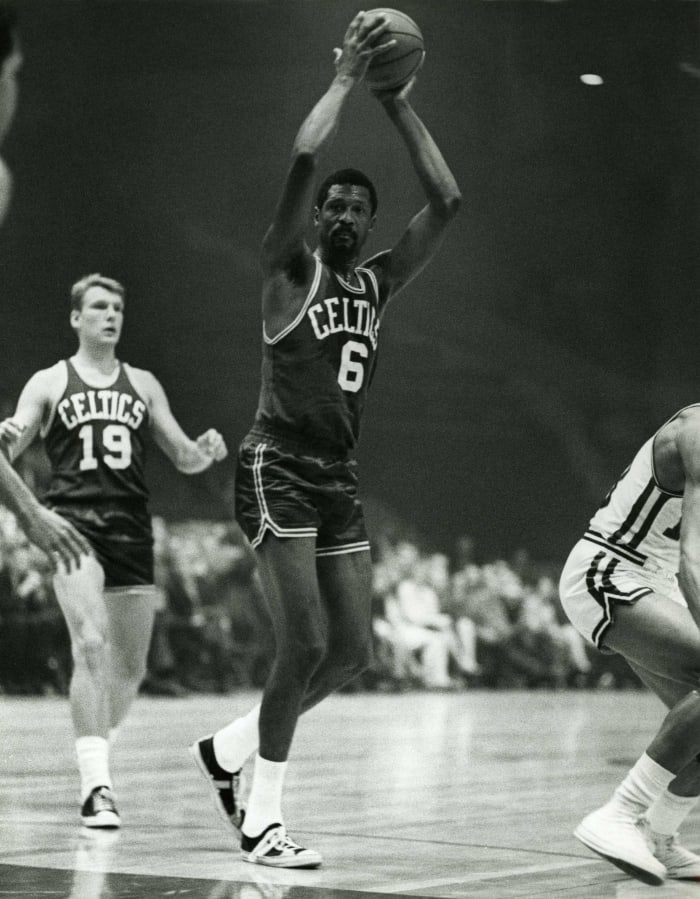
Credit: Malcolm Emmons-USA TODAY SPORTS
Bill Russell – 5 MVP Awards
The Boston Celtics had the best of both worlds. The team drafted Tom Heinsohn with the No. 1 overall pick. The team then traded with the Hawks for the No. 3 overall pick and still got the best player in the draft in Bill Russell. Both players were a part of a legendary run during the 60s, but it was Russell that won the five MVP Awards.
Russell won his first MVP during the 1957-58 season. The Celtics won 14 games in a row and never looked back. Russell averaged 16.6 points and led the league in rebounding with 22.7 per game. He was voted the league MVP but was selected to the All-NBA Second Team, something that happened often in his career as he battled Wilt Chamberlain for the top spot at the center position. Russell would then win four MVPs in five years between 1961 to 1965.
The three-peat between 1961 and 1963 featured some special seasons. The 1960-61 season featured Russell leading the Celtics to a regular season mark of 57-22. Russell averaged 16.9 points and 23.9 rebounds. The following season, Russell scored a career-high 18.9 points with 23.6 rebounds. Russell won the league MVP over Chamberlain, despite him averaging 50.4 points per game and scoring 100 points in a season. Russell completed the three-peat after averaging 16.8 points and 23.6 rebounds in a season where Bob Cousy retired beforehand. Russell won his final MVP in 1965 after leading the Celtics to 62 wins with a line of 14.1 points and 24.1 rebounds per game.
2. 1969 NBA Draft Class – 6 MVP Awards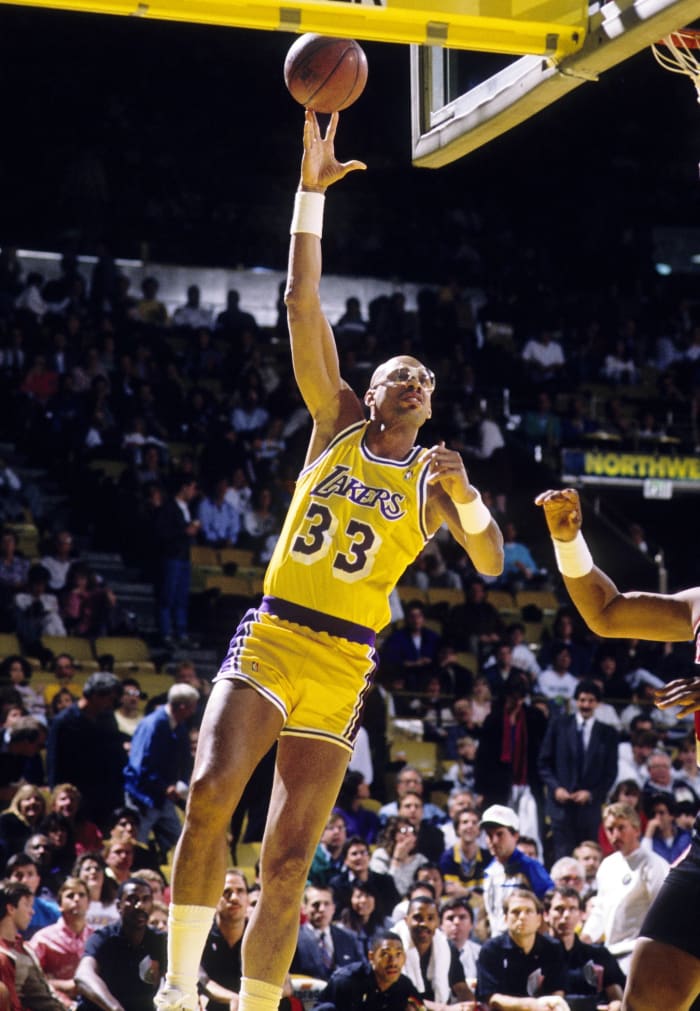
Credit: MPS-USA TODAY Sports
Kareem Abdul-Jabbar – 6 MVP Awards
For full clarity, there is one reason this draft class is featured, and that one reason is the one player named. Outside of Jo Jo White, Butch Beard, Norm Van Lier, Bob Dandridge, and Steve Mix, there is not a lot of prestige coming from this class. Equilibrium set in when given how much Kareem Abdul-Jabbar gave his teams for his performances. Abdul-Jabbar holds the individual record for most MVPs won by a player, with six, including winning with two different franchises.
Abdul-Jabbar won five MVPs during the 1970s, including three with the Milwaukee Bucks. During the 1970-71 season, Abudl-Jabbar led the league in scoring (31.7 PPG) and led the league in total points with 2,596 points. The Bucks eventually won the NBA championship that season, where he was also named Finals MVP. Abdul-Jabbar won again in 1972 when he averaged 34.8 points and scored 2,822 total points. Abdul-Jabbar won his third MVP in four seasons in 1974 when he averaged 27.0 points, 14.5 rebounds, and shot 53.9% from the field.
After asking for a trade, he was sent to the Los Angeles Lakers, where he won five more championships alongside future MVP teammate Magic Johnson. Before Johnson arrived, Abdul-Jabbar was a three-time MVP winner. That included his fourth overall award in 1976, when he averaged 27.7 points and led the league in rebounding (16.9) and blocked shots (4.1). Then, he won again in 1977, when he averaged 26.2 points, 13.3 rebounds, and 3.2 blocks per game. His final MVP came during the 1979-80 season. Johnson was a rookie at the time, but it was Abdul-Jabbar that shined by shooting a career-high 60.4% from the field with 24.8 points, 10.8 rebounds, and 3.4 blocks per game.
1. 1984 NBA Draft Class – 7 MVP Awards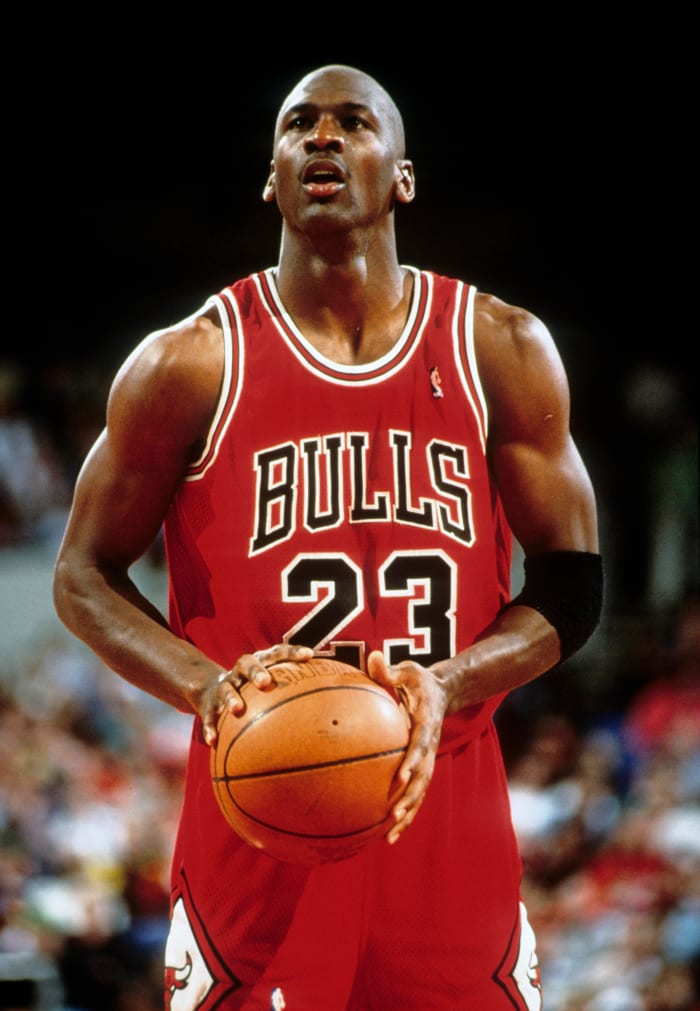
Credit: USA TODAY Sports
Michael Jordan – 5 MVP Awards
Charles Barkley – 1 MVP Award
Hakeem Olajuwon – 1 MVP Award
In general, this is a solid NBA class. Of the top 10 picks, five were All-Stars. Alvin Robertson was a steals machine, Otis Thorpe was a solid contributor, and the other three players were MVPs at least once. What makes this class even more amazing is that these three players were all taken in the top 5. That starts with No. 1 overall pick Hakeem Olajuwon, who is a staple of the Houston Rockets. Olajuwon took advantage of Michael Jordan’s retirement after 1993. With Jordan gone, Olajuwon became the new face of the league by winning in 1994 after averaging 27.3 points, 11.9 rebounds, and 3.7 blocks per game.
With that said, Jordan was a three-time Finals MVP winner and now the reigning league MVP when he retired the first time. Charles Barkley was the 1992-93 winner and would eventually lose to Jordan in the NBA Finals. However, Barkley was the supreme player during the regular season. Barkley averaged 25.6 points, 12.2 rebounds, and 5.1 assists while shooting 52.0% from the field to lead the Suns to 62 wins.
In the end, the player that helped carry this draft class to the top was Michael Jordan. His first MVP came during the 1987-88 season when he averaged 35.0 points per game on 53.5% shooting. Jordan was also named the Defensive Player of the Year when he led the league in steals with 3.1 and contributed 1.6 blocks as a shooting guard. Jordan would win a pair of MVPs in back-to-back fashion in 1991 and 1992. His second MVP came when he averaged 31.5 points, 6.0 rebounds, and 5.5 assists. The Bulls had set a franchise record of 61 wins at the time. Jordan won again in 1992 when the Bulls set a new record for wins with 67, and he averaged 30.1 points, 6.4 rebounds, and 6.1 assists per game.
Jordan left the league briefly but would be fully ready for the 1995-96 season after returning midway through the year prior. Jordan reminded everyone that he remained a top player in the league despite the hiatus. Jordan led the Bulls to a league-record of 72 wins and won another scoring title with 30.4 points. After losing the league MVP to Karl Malone in 1997, he won his fifth MVP in 1998 after leading the Bulls to 62 wins. Jordan led the league in scoring with 28.7 points and also supplied 5.8 rebounds and 1.7 steals.
At the end of the day, the 1984 NBA class is the best of all time. That is because the greatest player of all time accomplished everything you could think of winning in the NBA. Even with Jordan headlining this class, there are several other Hall of Famers that played their part in rewriting history. Jordan, Barkley, Olajuwon, and others were special and have the MVP trophies to prove it.



